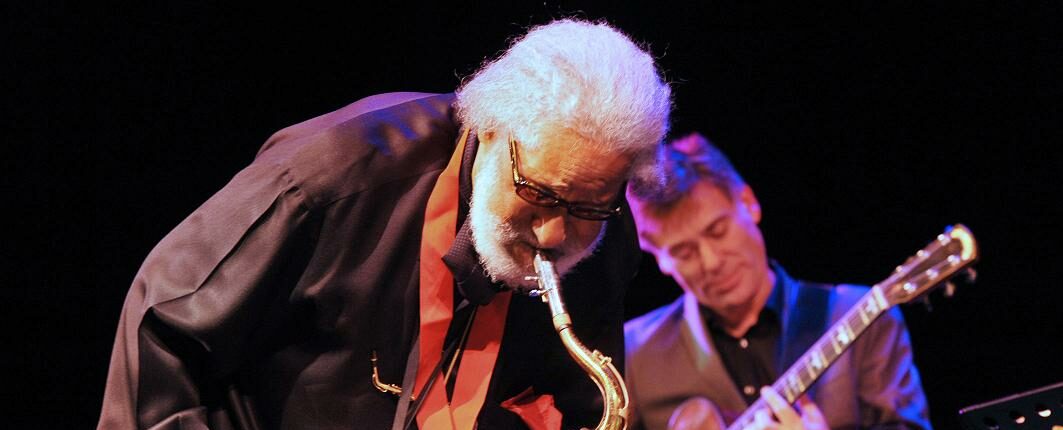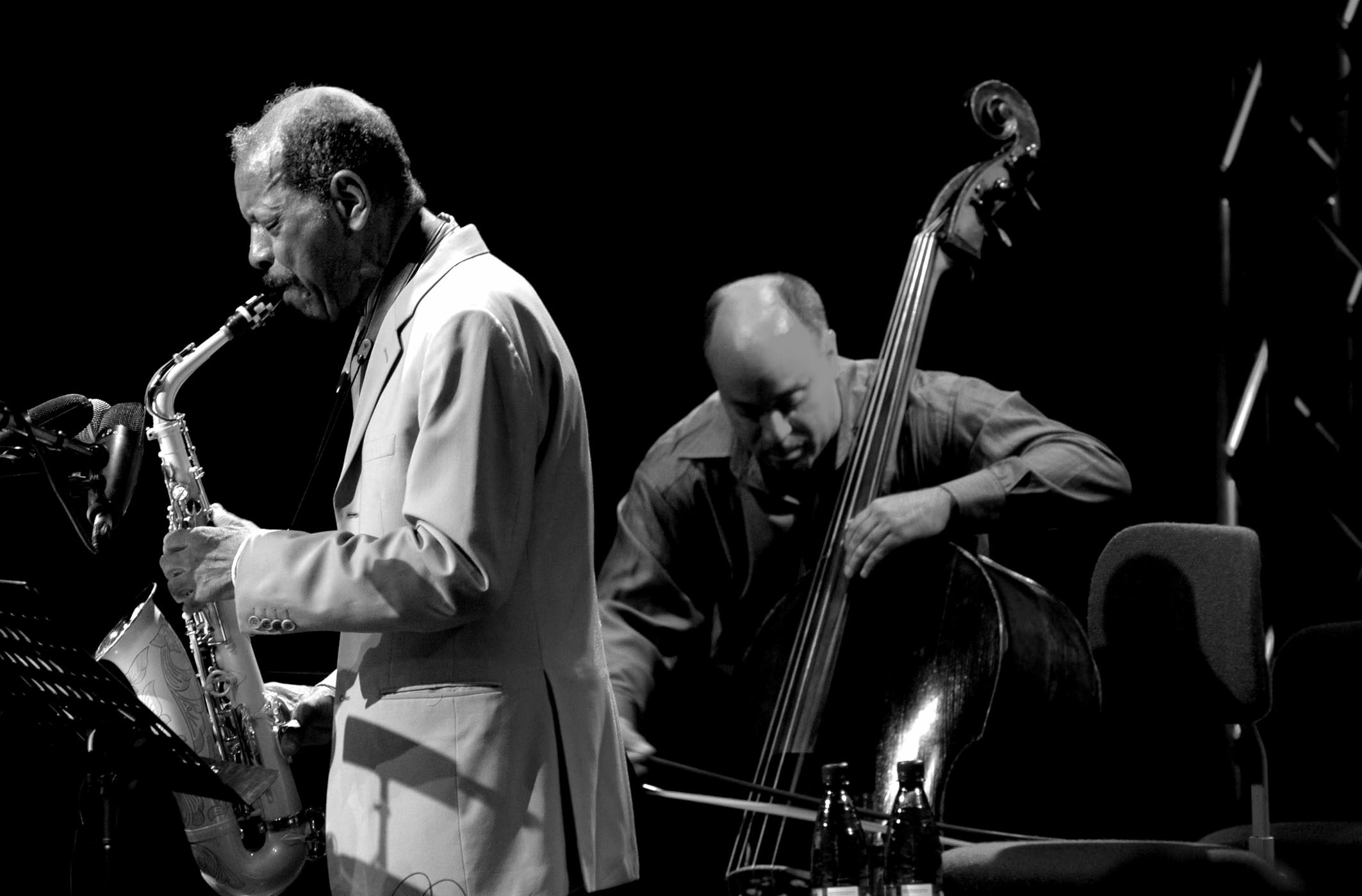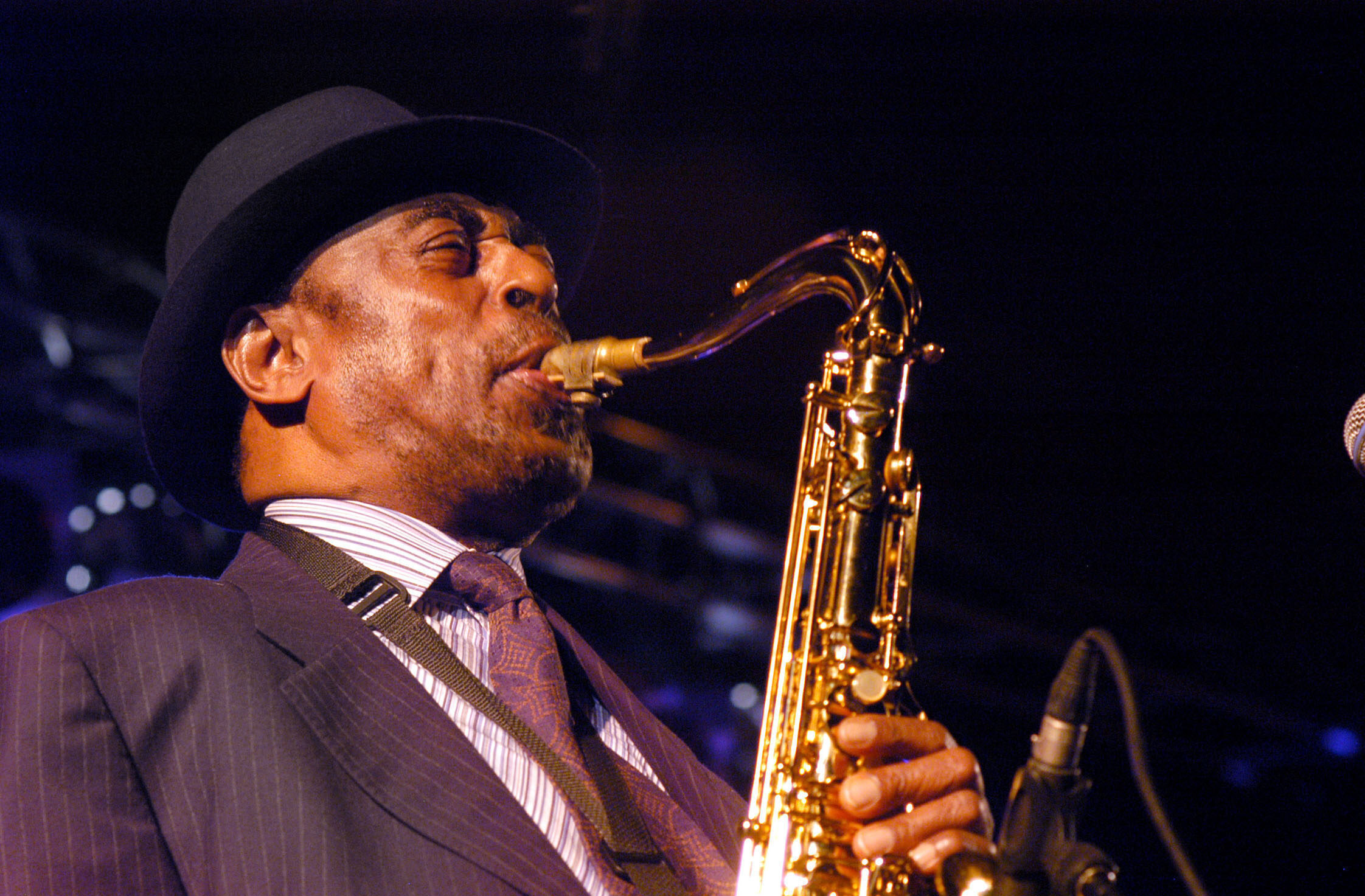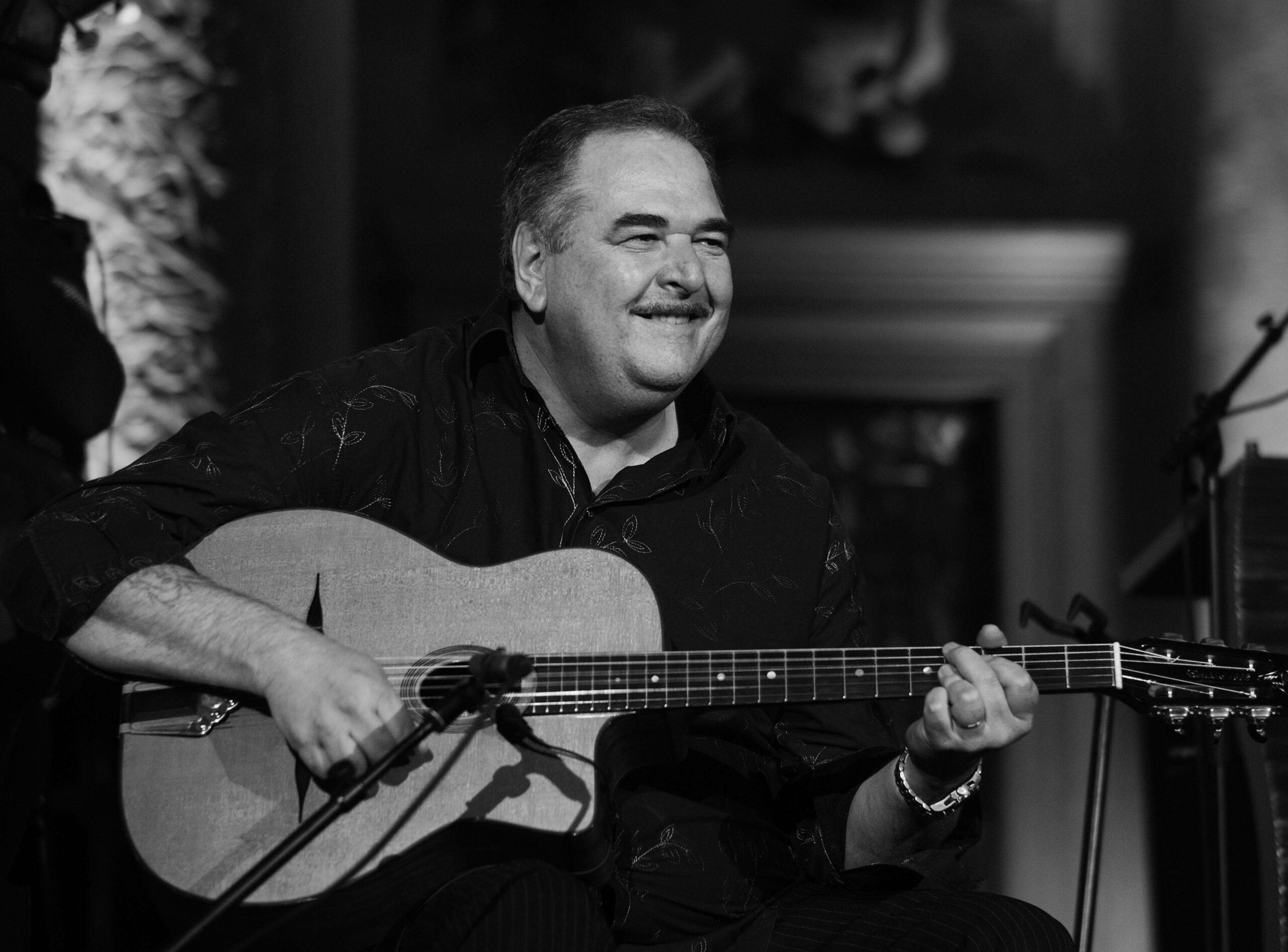Exactly 60 years ago, he was effectively elevated to the status of "Saxophone Colossus" by the marketing manager of his record company at the time: Sonny Rollins, now 85, is today the most important living musician of a generation that was still able to work freely on jazz and its seemingly inexhaustible possibilities without any encyclopaedic or scholastic preconceptions, because the map of modern jazz was still a long way from being mapped out. There were just as many role models as it took to embark on one's very own journey, filled with new, fresh ideas and full of inspiration. As in Rollins' case, Thelonious Monk, they were often also personal mentors. Today, it is hard to imagine that creativity had a completely different function back then than it does today. Where in today's jazz, at best, only hesitant, not yet fully illuminated niches are filled (whereby the impulses usually no longer come from jazz, but from other genres), back then empty spaces had to be filled, the size of which was not even foreseeable. Of course, for a young saxophonist like Sonny Rollins there were the courses set by Coleman Hawkins, of course there was Charlie Parker, but above all there was an unimaginable amount of space for him to constantly reposition himself musically far away from epigonism. There were, in rapid succession and beginning with bebop, collective musical and social upheavals over three decades, each of which tore down traditional and proclaimed individual and non-musical rights. A musical spirit as original as Sonny Rollins can only be imagined in this climate. Dogged, brusque, boundless and uncompromising, he honed his powerful and not infrequently angry and bitter tone and, with his Stream of Consciousness, developed a highly associative improvisational method that has set standards in terms of structure, melody and the splitting up of the beat that are still valid today, and not just on his instrument. This achievement, which is not a matter of course in jazz, has gradually gained widespread recognition. Rollins has received practically every major music award: from the Polar Prize, the highly endowed "alternative Nobel Prize for music", the NEA Jazz Masters Fellowship and the Kennedy Prize to the Grammy for his life's work. The fourth edition of Sonny Rollin's "Road Shows" series has just been released on CD. has been released. From his private archive of around 300 concert recordings spanning five decades, Rollins has compiled typical fictitious concerts that show him at the height of his art. This provides some consolation for the fact that the style-defining tenor saxophonist had to stop his previously very busy concert schedule last year. In the course of the album's release, we had the rare opportunity to speak with Sonny Rollins.
Note: This interview originally took place in 2016 and is published here on the occasion of the 25th anniversary of Enjoy Jazz. The statements and references made in the interview refer to this date.
Mr. Rollins, let's take a quick look back. You were born in Harlem in 1930, a melting pot that was virtually filled with music at the time.
SR: Oh yes, and I feel very lucky to have been born in Harlem. It was the epicenter of jazz. Practically all the great jazz musicians came to New York to play there. But Harlem was also the epicenter of the Black community in general. That's why this place was so important. I met people here who inspired me. This is especially true of Fats Waller. I heard him as a young boy and was immediately fascinated by his music. From then on, I knew what I wanted to do for the rest of my life.
You talked about the Black community. For you, jazz has always been political music. Has it changed anything?
SR: In some ways, the situation of black people has definitely changed, but on the other hand, the basic problem is still there. It is very difficult to make real progress in terms of equality. A lot of things today have simply been masked by history, but have remained substantially unchanged. Progress is a snail. It's all very complicated. If you want my opinion on this: The world will never really change. The hope that something could permanently change for the better, that man himself would become a better person, is at best the stuff of a fantasy novel. It's not going to happen. The world is obviously not made to exist in peace. Not this world. Perhaps there is such a paradisiacal place somewhere in the universe. Our world is not. Our world has always been one of resentment, of wanting to be right, of fighting and killing. We have to accept that. Small steps towards improvement may be possible from time to time and even succeed. But the big picture is predetermined as unchangeable.
Her own life was also characterized by tireless fighting for more freedom. freedom. Have you at least found something like peace within yourself if it doesn't seem possible in the world?
SR: That's a very good and valid question. No. I have never found peace within myself. Let me explain so that you don't get the wrong idea. I struggle every day to make myself a better person. And when I'm on stage, I fight to make myself a better musician. It's an ongoing process. Inner peace would be a final result: a state that will never come about. Although perhaps there is something like personal peace in having realized that life works in such a way that the highest is not possible. Because I have not experienced the happiness of having achieved what is possible in my imagination as a person or musician. You can always be fairer, more more generous, even more devoted to people than I am. I'm still working on that. Every day.
They are perhaps the last great representative of an era. Do you feel something like a responsibility towards history?
SR: I think history put me in the body of a guy named Sonny Rollins and it will have had its reasons. It's karma. The unpredictability of life has made me who I am. And I have to deal with that. That applies to everyone. Everyone has their own path to follow. Every life has a different secret that contributes to its success or failure. My goal has always been to gain a certain wisdom along the way. I always wanted to understand why I am in this place and what my purpose is. Because nothing happens without a reason. We just have to find it.
You are one of the comparatively few jazz musicians who are adequately, not to say lavishly, remunerated for their concerts. Do you remember when and how you achieved this status?
SR: It was definitely difficult.
But you got it right.
SR: I'm afraid I have to answer that a little evasively to make it clear what I'm essentially talking about. The difficult thing is that music initially requires us to surrender ourselves completely to it. It is a spiritual force. We cannot explain it. It does something to us and we cannot escape it. If you have the talent to make music, you will pursue it, you must pursue it, regardless of the consequences. And regardless of economic considerations. When I played with people like Bud Powell, Miles or Thelonious Monk back then, I never asked for money, although of course I felt that the rent had to be paid. But back then we simply lived for the music. We wanted to create something that required all our energy. There were no distractions for us. We only lived for this one thing. That may have become even more difficult nowadays. But the fact is: we can tell our life what it should be. And that includes the fact that those who need a regular high income for their understanding of life might be better off becoming a manager or doctor or at least play music that the masses want to listen to. Jazz is unsuitable for this. I never cared about that. I never thought about money first. But I know many young jazz musicians who, after getting married and having children, stopped playing music because they couldn't support their families.
Do you think that's fair?
SR: No. But I don't think you should judge life by its economic returns. I've met so many wonderful people in my life who were garbage collectors or did repairs on houses and certainly earned very little money from it. I have learned that nothing in this world can be meaningfully measured by money. The important thing is that you can do what you are meant to do. In my case, that's music. I feel very fortunate. So I make music first and foremost. For me, music has nothing to do with the everyday aspects of life, nothing to do with economic considerations, but with values such as love and freedom. It is something fundamental.
The most significant expression of this freedom in their music is their understanding of improvisation, for which you have coined the term Stream of Consciousness. What fascinates me about it is the high degree of structure that characterizes your spontaneous playing.
SR: That's because I always know exactly what I'm playing. I have to study every melody, no matter how simple, almost obsessively. I analyze the melody, the harmonic structure, the general functioning of a piece. But the most important thing is the melody. I practise it until I can play it forwards and backwards, awake and asleep, until it has become a part of me and to a certain extent has dissolved into me. This changes my awareness of this melody. I stop thinking in it and of it while I am playing. That's exactly the moment when it kicks in. It makes no sense before that. This process imperceptibly provides me with a new set of instruments that I can use intuitively while playing. Then I let the music flow and watch or listen to it. Everything now comes from the subconscious. I am often asked where a certain idea or phrase comes from, but I can only say that I don't know. What I do know is that it is a mirror of my subconscious. Music has its origin in the depths of the subconscious. The conscious mind is only for learning. It is necessary in order to gain access to music, but it does not serve its realization. Conscious action is perhaps best compared to the floors of a house. They are the result of building on an invisible foundation. And our subconscious stands for exactly that: it is the foundation, the base. We see the surface, but if we want to rebuild or convert it, we need to know the foundation. Of course, such a foundation is unsuitable to live in. We live on the upper floors, but we can only lead and understand this life because it has a foundation. And that is what the subconscious stands for - in life as in music. It is the sum of our experiences, our fears, our hopes. The approach that also plays a role in Zen Buddhism, for example, of building and understanding everything from the depths, is for me the equivalent of my understanding of improvisation: drawing from the subconscious, which becomes a stream of consciousness. Consciousness is led back to the deepest point of our own existence, it is fed from the subconscious. This makes us aware that there is something else behind or beneath our consciousness, which is the actual reason or the basic material for everything. That is the place of music. And that's not where I think while I play, that's where I know. That doesn't mean that I know what I'm going to play next, but that the knowledge plays me. This process happens so quickly that you wouldn't have a chance to follow it mentally. I have tried, of course. But it wasn't possible for me to think and play at the same time. If you start thinking while playing, you destroy the flow of the music.
Does that mean that you immediately sense what is happening in your music and that you are always surprised by it yourself?
SR: Yes, that's how it is. When you listen to people like Louis Armstrong or John Coltrane, you feel that they always know exactly what they are playing and that their playing has an inexplicable depth at the same time. Because it reflects the depth of their subconscious. It's not just that they know how to play something and that they can call up the necessary technique, they bring something to the surface that is bigger than them.
Speaking of the subconscious: Does this also include the fact that during the recording sessions you already suspected that albums like "Saxophone Colossus" or "The Bridge" would become milestones in jazz?
SR: Basically, that's a pretty funny question. Because the crazy thing is that you never really know where things are going. You might spontaneously recognize something special, but you can't categorize it yet. I always knew that I had a talent for music. And music is a question of talent. You can't make yourself a jazz musician - you are one. At some point you go into the studio and record a record. If you're lucky, people will like what you've recorded. That doesn't change the fact that you were just trying to do a good job, as usual. But I couldn't possibly have predicted during the recordings how they would be received out there later.
Is there actually a perfect concert moment for you?
SR: While I'm playing or in hindsight?
Both and.
SR: Yes and no. I would say it is fundamentally important that I have the feeling that my ideas have worked and the music has started to flow. And if my band was also satisfied and the audience was moved, then I definitely get the impression: That was a really good evening. There is a force that guides me when I play, which is sometimes stronger and sometimes weaker, which also has to do with how free I am in my thoughts and how I can express them through my saxophone. In retrospect, of course, there is sometimes the somewhat disturbing phenomenon at first glance that the audience liked a concert that I didn't like. These are the moments when you realize. That your own expectations are of course always higher and should be. I say that with all due respect. After all, I'm playing for the audience. Reaching a higher level of communication with them during a concert is still fascinating and an enormous motivation every evening. That's why I'm very happy when people like what I play. But I have to admit: I'm even happier when I can like what I play myself.
Your self-presentation on stage is very serious. Do you also see this as a socio-political statement?
SR: You can certainly see it that way. It comes from the past. Jazz was never really accepted as a serious form of music by the larger music community. Jazz was not seen as having any value, but was often devalued as a joke or dance music without any social or intellectual significance. Of course, there were also socio-political or openly racist reasons for this. In any case, all of this is inscribed in its history. Many jazz musicians suffered as a result, for example in their dealings with record companies. So more and more musicians rebelled against it. With their music and by beginning to present themselves on stage in an emphatically serious manner. Take Charlie Parker, for example. When he played, he usually stood upright, without any ecstatic contortions. He just played his music. That doesn't mean that as a musician or listener couldn't still have fun. Dizzy Gillespie proved that very clearly. Humor was part of his personality, but it never influenced or damaged the seriousness of his playing. I see myself in this tradition. I realized back then that it was important to make a statement with the way you present yourself on stage, because it is perceived as part of the performance and cannot be viewed separately from the music. Especially back then in the 40s and 50s, it was about a new seriousness in our music. We wanted jazz to be respected musically and socially.
Speaking of stage experience: for health reasons, they have unfortunately not been able to give any more any more concerts. Will we see you on stage again?
SR: I actually have some health problems. But there are now completely new forms of drug therapy for this. Of course I hope that this might give me the opportunity to return to the stage after all. But at the moment I can't answer your question with a clear yes or no.
I still see this as good news at the end. I would still be interested in one thing, though. If you could put together a band from the entire history of jazz, who would you hire?
SR: You won't be surprised when I say there are so many. But in any case and first and foremost, I would like to play with Fats Waller. You know, the nice thing about that question is that it makes me happy in that it makes me realize how many wonderful musicians I've had the opportunity to play with over the years and how much I've been influenced by them. Count Basie immediately comes to mind. It was a stroke of luck to have known him. And then he also really liked my playing as a young musician. That was uplifting. Unfortunately, we only got to know each other towards the end of his career, so that never had the opportunity to play with him. I would love to make up for that. And of course I would also have to add Louis Armstrong to my list. But like I said, the good thing about this mind game is to realize how lucky I've been in my life and with my music. Even though I know I can't really take credit for it. The truth is, I was given a talent. It wasn't me who made me what I am, but this talent that was given to me! This realization hits me hard, by the way. Because I can't stand up and say what a great musician Sonny Rollins is and that he made it himself. No, it was given to me.
But you have worked hard on it.
SR: Without a doubt. But I loved it. So, strictly speaking, it wasn't work at all. At least I never perceived it as such. Do you know how it was for me when I played a concert? I always played a bit on the saxophone before the sound check, after the sound check I just carried on playing in my dressing room, then the concert started and after the concert I was still playing backstage. I often just kept playing on my own until the lights went out. Because that's what I always wanted to do. I love it. This is my life.

Date: December 14, 2023




